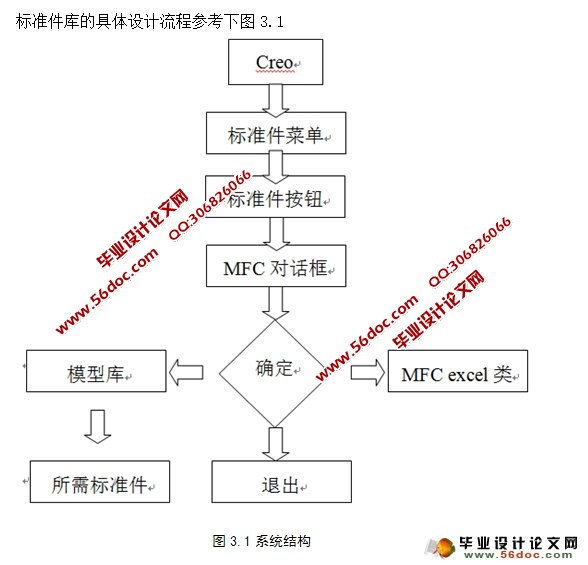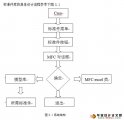三维设计自动化平台—标准件库开发
来源:wenku7.com 资料编号:WK713827 资料等级:★★★★★ %E8%B5%84%E6%96%99%E7%BC%96%E5%8F%B7%EF%BC%9AWK713827
以下是资料介绍,如需要完整的请充值下载。
1.无需注册登录,支付后按照提示操作即可获取该资料.
2.资料以网页介绍的为准,下载后不会有水印.资料仅供学习参考之用. 密 保 惠 帮助
资料介绍
三维设计自动化平台—标准件库开发(任务书,开题报告,外文翻译,论文7800字)
摘 要
本文首先对三维设计自动化平台—标准件库开发的目的、意义、研究重点、研究状况进行了介绍;并介绍了标准件库开发平台——Creo2.0,包扩其本身包含的二次开发工具Pro/ETOOLKIT,同时介绍的还有制作过程中所必须的visualstudio2010软件的环境配置和代码编译。本文还论述了利用MFC可视化对话框如何来建立人机交互的界面,并利用visualstudio2010的excel类选项完成数据的调入让模型与对话框实现关联实现标准件的调入。最后具体列出实例开发,进一步验证论文的准确性,从而完成毕业设计的制作。
关键词:标准件库开发;Creo2.0;Visual Studio 2010;Pro/ETOOLKIT; MFC
3-dimensional design automation platform -The development of Standard parts library
Abstract
This paper introduces 3D design automation platform - development of standard parts library for the purpose, significance, research focus, research status and standard parts library development platform -- Creo2.0 including the expansion of its own contains secondary development tools Pro/ETOOLKIT, introduced at the same time and production process must be visualstudio2010 software of environment configuration and code compilation. Data are also discussed in this paper how to build human-computer interaction interface using visual MFC dialog box, and the use of visualstudio2010 excel options transferred to make the model with the dialog box to achieve the associated implementation of standard parts transferred. Finally, specific examples are listed to further verify the accuracy of the paper, thus completing the graduation design.
Key words: standard parts library development; Creo2.0; Studio Visual 2010; Pro/ETOOLKIT; MFC

目 录
目 录 I
摘 要 II
1 绪 论 1
1.1 开发的目的和意义 1
1.2 本课题所涉及的问题在国内研究现状及分析 2
1.2.1 CAD技术的发展 2
1.2.2 现状分析 2
2 系统开发平台的介绍 4
2.1 Creo软件简介 4
2.2 Creo二次开发工具 4
2.2.1 开发工具Pro/TOOLKIT简介 5
2.2.2 应用程序开发工具 6
2.3 MFC的介绍 6
3 标准件库系统的开发 8
3.1 系统的总体结构图 8
3.2 利用vs2010来创建Pro/Toolkit应用程序基本框架 8
3.2.1 开发环境配置 8
3.2.2 菜单的添加 10
3.2.3 注册文件的编写和注册 12
3.3 MFC可视化窗口的设计以及参数化读写 14
3.4 程序运行演示 21
4 结论 22
5展望 23
参考文献 24
致谢 25
|



